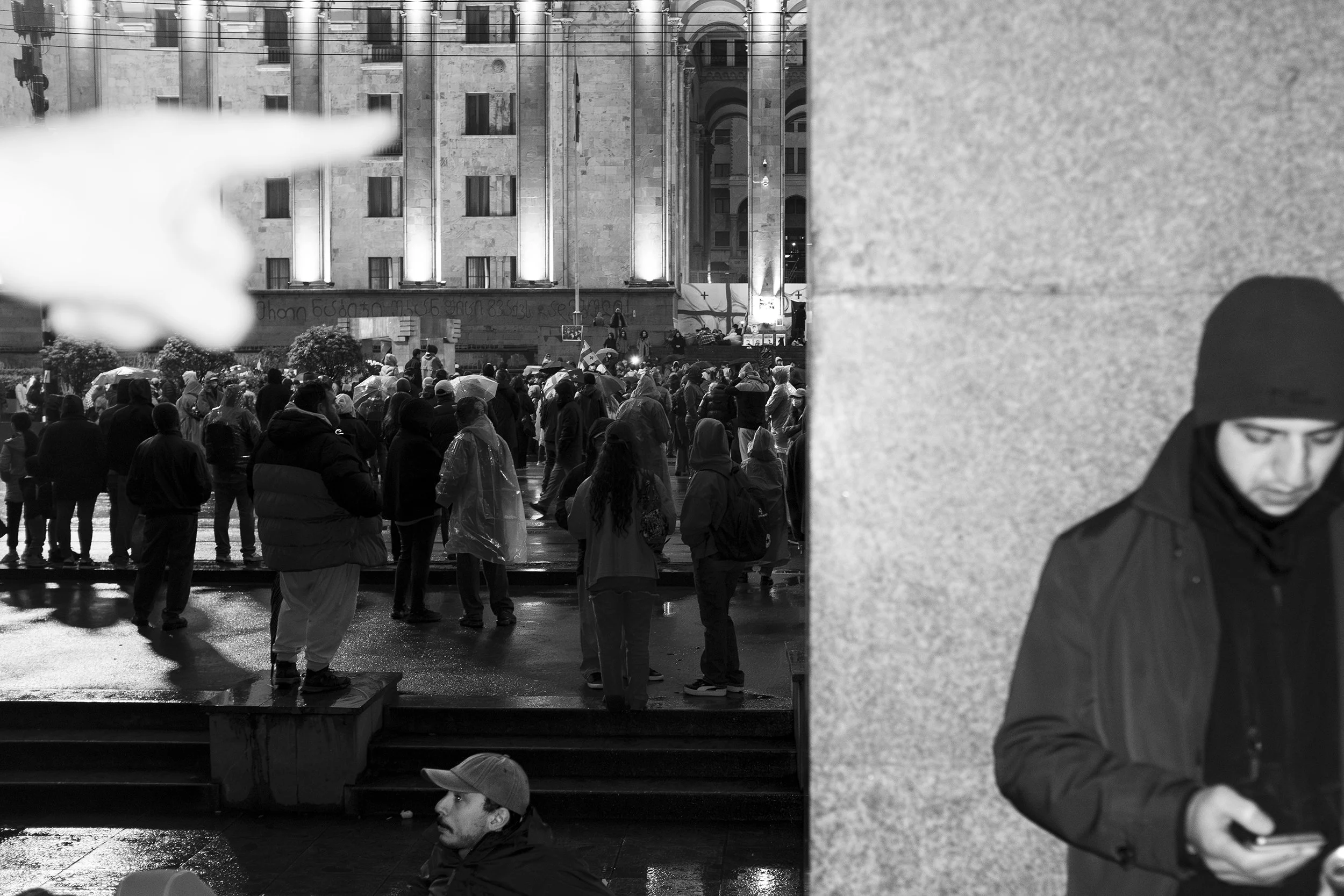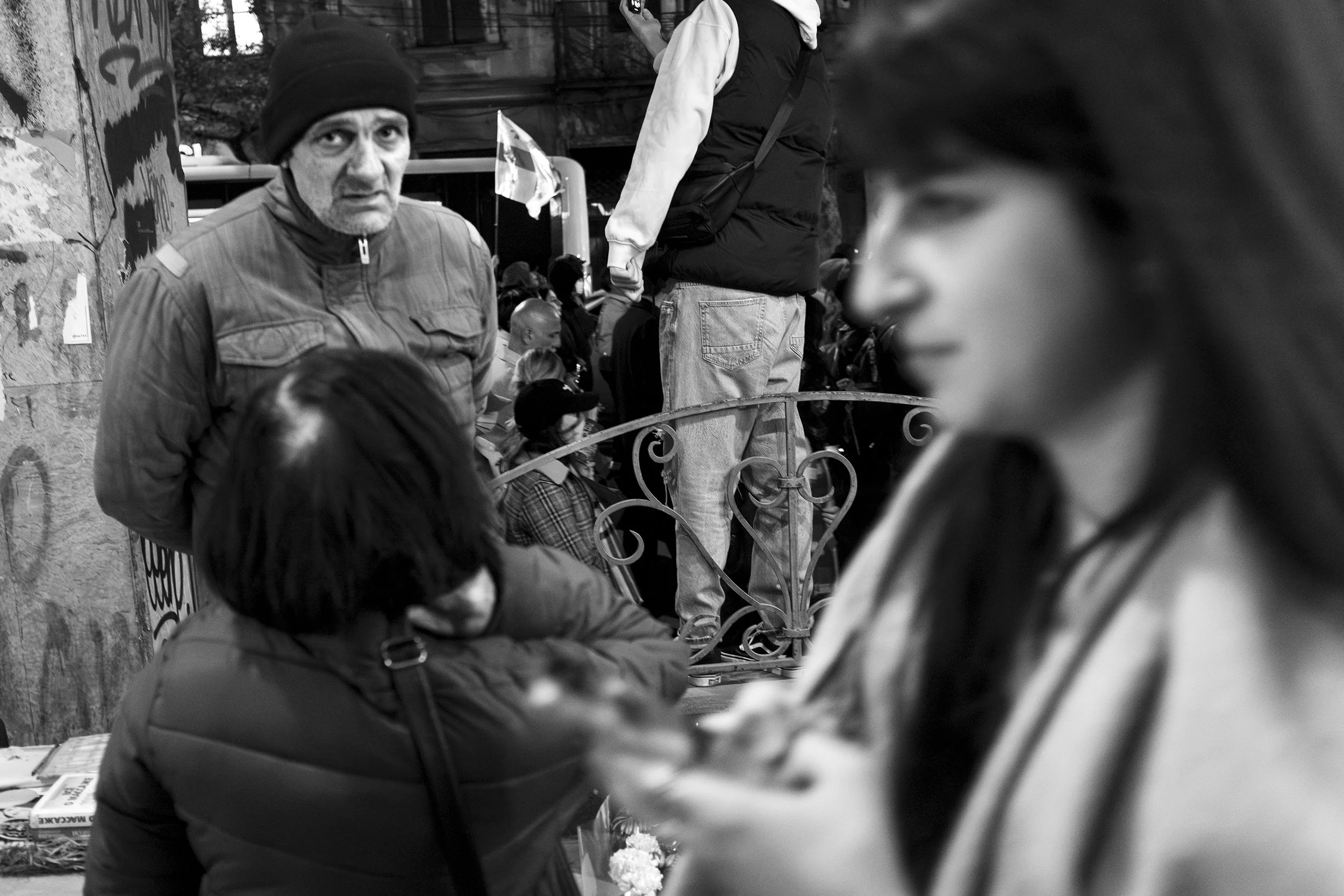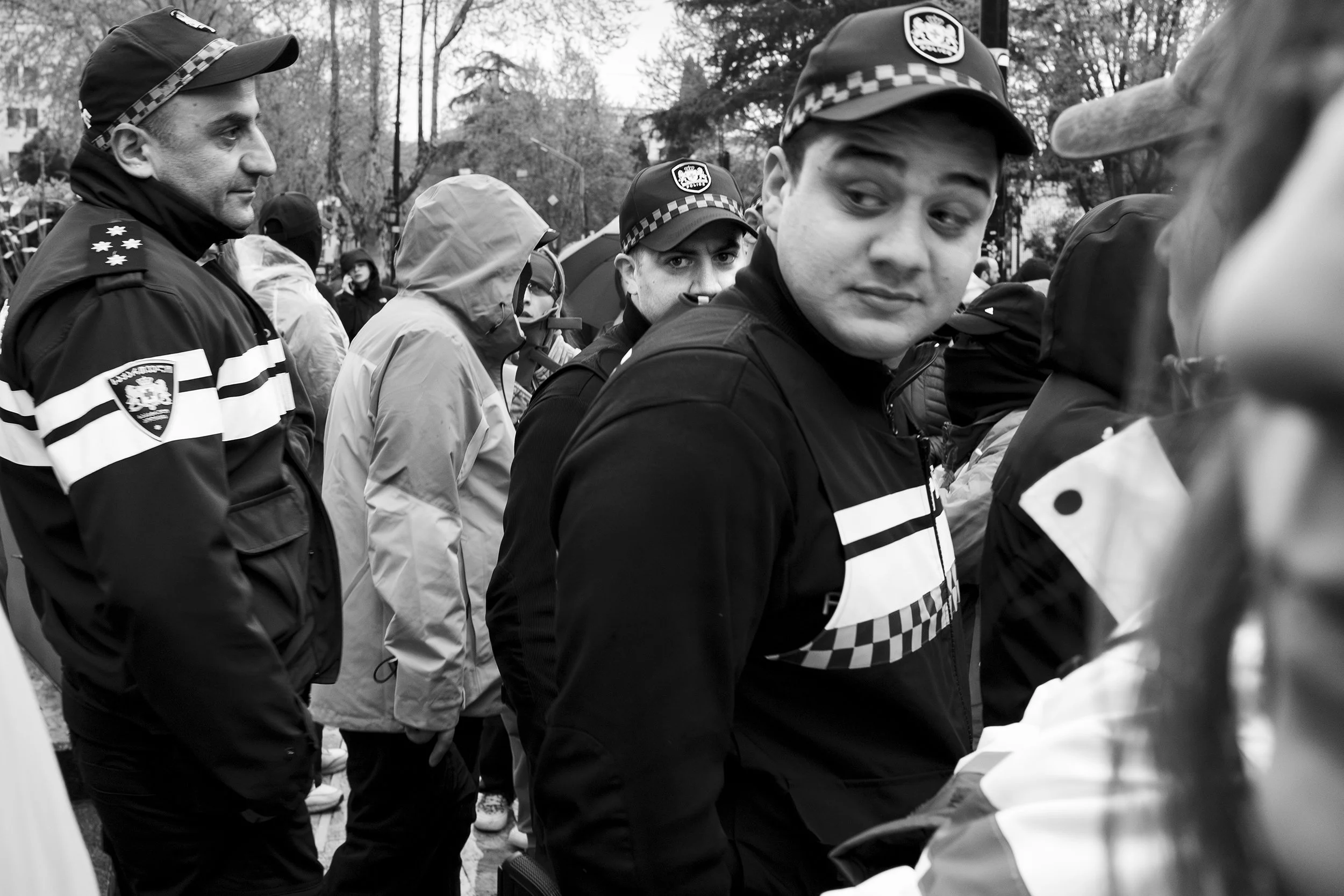Contrast 41
The most terrifying thing is to accept oneself completely. – Carl Jung.
Since Georgia’s Prime Minister suspended negotiations for EU membership on November 28, 2024, people have been protesting nonstop across the country. Demonstrators demand new parliamentary elections and the release of political prisoners. The government’s response has been increasing repression.
Far fewer people take to the streets than support EU integration. The reasons vary: lack of leadership, nihilism, fear, a nearly nonexistent opposition, or support for the ruling party. For over 200 years, Russia has attacked Georgia in different forms - but always the same scenario. Today, it’s not tanks, but propaganda and fear.
The current events echo the 1921 occupation and following repressions. When I studied that history, I wondered how people lived through it, how they resisted or adapted. Sadly, that reflection feels possible today: how we act now may reflect how we would have acted then.
Georgians have always been at a crossroads, resisting foreign domination. Even our greeting, “Gamarjoba,” means “I wish you victory.” Today, the crossroads is clear: on one side, Russia - corruption, poverty, hopelessness. On the other, the EU - a chance for institutional independence and a better future.
Some say the West is also evil, and perhaps that’s partly true. But if forced to choose between two evils, I choose the lesser. Not choosing at all is choosing the greater.
©Irakli Bigvava for The VII Foundation
People stand in front of the Georgian Parliament building during a demonstration in Tbilisi, Georgia. April 9, 2025. Non-stop protests have been taking place across the country since November 28, 2024, when the Georgian Prime Minister suspended negotiations on joining the European Union.
Two demonstrators play chess in front of the Georgian Parliament building during the anti-government protests in Tbilisi, Georgia. May 10, 2025.
Office of one of the organizers. A member of the organizing group holds flagpoles used during marches, as others prepare for the protest in Tbilisi, Georgia. April 30, 2025. As there are no formal political leaders behind these demonstrations, a group of protesters took the initiative to organize marches and they have also established a Social Democratic movement.
A man and a woman chat on the street while demonstrators march behind them in Tbilisi, Georgia. April 8, 2025. Some citizens choose not to join the protests for various reasons, including fear, disillusionment, or support for the pro-Russian government.
A boy plays football as protesters march through the streets in Tbilisi, Georgia. May 9, 2025.
Demonstrators chant and wave national flags during a protest in front of the Georgian Parliament building in Tbilisi, Georgia. April 28, 2025.
A Georgian woman points at marching demonstrators with disdain, while a tourist from Asia films the scene on her phone in Tbilisi, Georgia. April 6, 2025.
Two young Georgian girls imitate chants and gestures of older demonstrators as a protest begins in Tbilisi, Georgia. May 11, 2025.
Georgian citizens wait at a bus stop as protesters march past during an anti-government demonstration in Tbilisi, Georgia. April 8, 2025. The image highlights public apathy and detachment observed among some segments of the population during ongoing nationwide protests.
A group of demonstrators converse in a small, camp-like area set up in front of the Georgian Parliament building, where protestors maintain a continuous 24/7 presence. Tbilisi, Georgia. May 10, 2025.
An elderly Georgian woman reacts emotionally as demonstrators march through the streets of Tbilisi, Georgia. April 14, 2025. Although distressed by the country’s current situation, she believes the struggle is futile and sees little hope for a better future.
Georgian police officers walk through a crowd of demonstrators in Tbilisi, Georgia. April 9, 2025. Their stern expressions convey a clear warning—any misstep could lead to arrest.
A group of organizers discuss strategies for planning upcoming marches and demonstrations in their office in Tbilisi, Georgia. April 28, 2025. As daily participation in the protests decreases, they express frustration and brainstorm ways to mobilize larger crowds.
A small group of protesters sit in front of the Georgian Parliament building in Tbilisi, Georgia. May 11, 2025. After marching throughout the day, they rest in the middle of the road, hoping that more participants will join them later in the evening.
A Georgian woman uses a dark underground passage to cross the street that has been closed by protesters in Tbilisi, Georgia. May 10, 2025. Refusing to join the demonstration, she chooses to avoid the crowd, preferring the symbolic darkness to show her disassociation from the protest.














